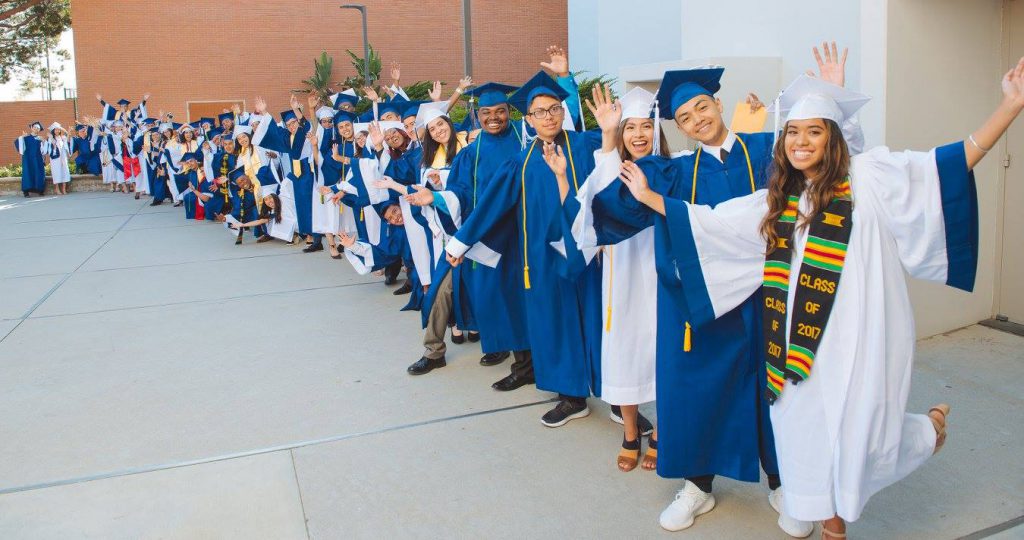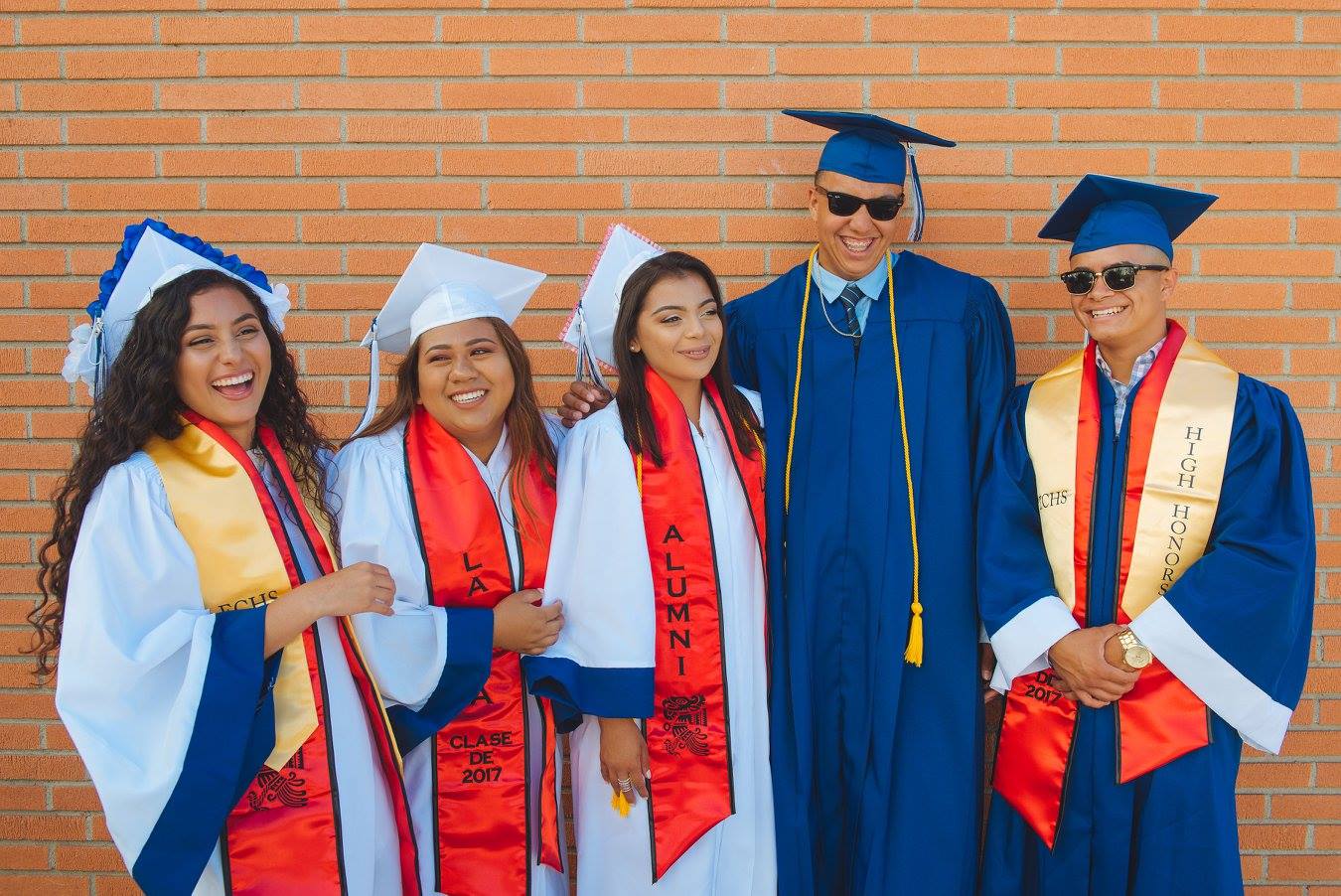
Environmental Charter Schools (ECS): Reimagining Public Education
The mission of Environmental Charter Schools (ECS) is to reimagine public education in low income communities of color to prepare conscious, critical thinkers who are equipped to graduate from college and create a more equitable and sustainable world. At Kars4Kids, we find this a quite commendable goal, in a time when many lament the fact that critical thinking seems to be a lost skill. We see critical thought as the only way to cut through the fake news to the truth. Only by confronting that truth, can the youth of today, improve tomorrow. And so we decided to support the Environmental Charter Schools mission with a small grant, our modest way of offering a helping hand to a good cause.
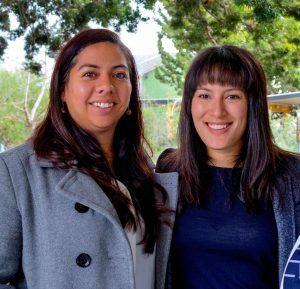
We spoke to Environmental Charter High School (ECHS) Principal KC Fabiero, and ECHS Dean of Student Services Lucia Banuelos to learn more about this unique learning environment.
Kars4Kids: ECS schools have a 1:25 teacher student ratio. How does that compare to the teacher student ratio in other Los Angeles public schools?
KC Fabiero: For many of our peer schools, particularly local high schools, the teacher student ratio is well over 1:40 and in some cases, even 1:45. At ECS, we believe that small learning communities promote more personal and supportive relationships between and among students, teachers, parents, and their communities. The benefits of small schools, which are well documented in research, include improved student attitudes towards school; lower incidences of negative social behavior such as truancy; higher levels of extracurricular participation; higher attendance rates; improved retention rates; improved students’ self-concepts; and a sense of belonging and favorable interpersonal relationships among students. ECS provides a supportive learning environment where each student is known well by a small group of caring and skilled teachers.
Kars4Kids: You encourage concurrent enrollment in community college for your high school students. What percentage of your students are in community college while attending ECHS?
Lucia Banuelos: ECHS provides a rigorous college preparation program with an emphasis on critical thinking, problem solving, and college readiness. Students complete college-level research projects, visit numerous colleges, and are provided with SAT prep. The results are extraordinary: In 2018, 96% of graduates received admission to a four-year higher education institution. 86% will be the first in their families to go onward to higher education.
Currently, about 10% of our senior class is dual enrolled in community college classes while attending ECHS. We’ve seen an increase in the last few years and are working on continuing to further that number. As a college-preparatory school, we encourage students to enroll in enrichment courses at the community college level whenever possible because it is both no-cost to them as high school students and also allows them to earn college credits that are transferable. As 83% of our students qualify for the free and reduced lunch program, being able to access these cost savings related to their higher education career is essential and makes college access more equitable for our students.
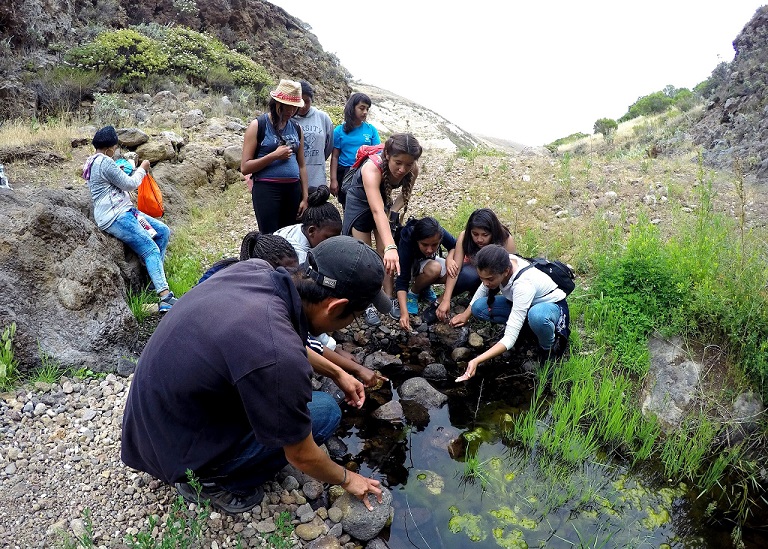
Kars4Kids: ECHS students have a student advisory teacher assigned to them for the entire four years of high school. What happens if the chemistry between student and teacher is bad? Does that happen?
KC Fabiero: It can happen, but very rarely. We almost never remove the student or switch them to another advisor. The reason is that we encourage both the teacher and student to work out whatever conflict or challenges they might be experiencing. ECS is a different kind of school in that we are their family away from home. In being that, we encourage everyone to work things out even in the midst of challenges. Our students learn to problem solve and approach interpersonal conflicts with a commitment to reach a resolution. When they go on to college and the world beyond ECS, they will face similar issues and will need to know how to navigate many spaces. Our objective is to give them the tools to adjust, manage and reach resolution in light of feelings of discomfort.
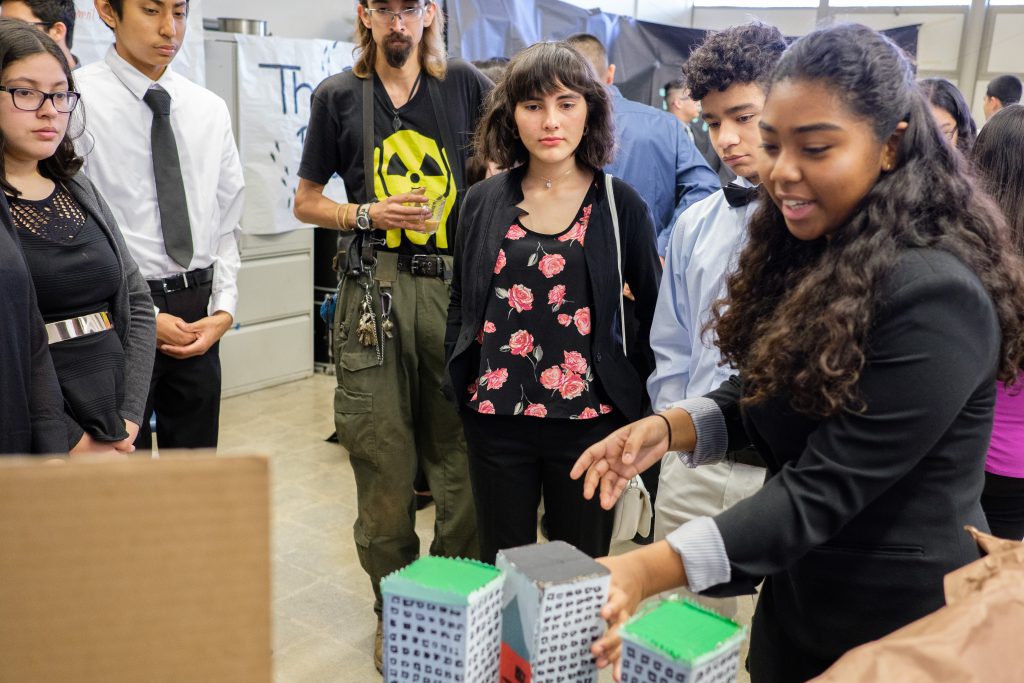
Kars4Kids: Students must be accepted into university in order to graduate high school. How often does it happen that a student just can’t make the grade, even with all the help and support of the school? What happens to the student who doesn’t get into college? Does he stay at ECHS until he can pull it off?
KC Fabiero: ECS is proud that 98% of its high school graduates have completed the coursework needed to seek college admission. Most notably, in 2017-2018, 96% of ECHS graduates were accepted into a 4-year college or university.
For the few students who do not get accepted into a four-year college or university, this often occurs due to extenuating circumstances or extreme hardship. There is a process established in which the very few students who are not able to meet the expectation are required to submit a petition to our ECS Board of Directors and there is clear communication about the specific circumstances the student may be facing and what measures our school sites are taking to support the student and his or her family. This process keeps us accountable to our students and provides an opportunity to evaluate and analyze each case to ensure we have done everything we could to support each student. ECS is committed to working with the student and their family to help them reach their educational goals. We work hard to anticipate any barriers or challenges the student may be facing and connect them to the appropriate support, interventions and resources.
Kars4Kids: Are ECS middle school and high school students handpicked? What factors might contribute to a student being offered a chance to attend an ECS?
Lucia Banuelos: ECS schools use an open lottery system for any student to apply. At Environmental Charter High School (Lawndale, CA), fifty percent of the incoming students must come from Lawndale. The other 50% can come from many different areas including Hawthorne, Gardena, Torrance, Compton, and even Long Beach and San Pedro. At ECS middle schools which are located in Inglewood and the Harbor Gateway North Neighborhood (Gardena), students can apply from any city.
We regularly advertise in our local neighborhoods to encourage families to apply. ECS schools also visit all feeder elementary and middle schools each year to recruit students and share ECHS expectations and best practices. Once they are selected (by random lottery), we work carefully and intentionally to transition our students and families into our school program, including enrollment meetings for all families, followed by first day of school meetings and mid-semester Parent Conferences, to review expectations, programs, placement options, and student performance with students and parents. All incoming students also attend a two-week SummerBridge program which includes mentorship, field trips and team building with peers to smooth the transition for all incoming students.
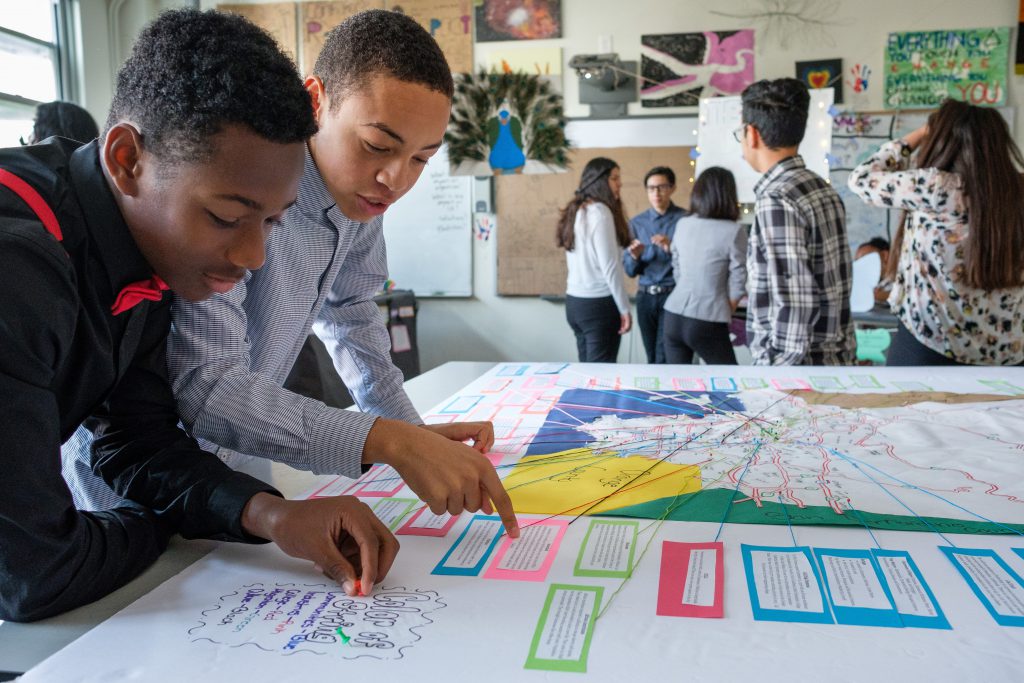
Kars4Kids: There are currently three ECS schools. Are there plans to open more branches? Are you able to accommodate all the students who want to your high school?
KC Fabiero: When ECS opened its doors, we only had 100 students and four classrooms. From 2001 to 2005, enrollment grew and it became clear that our ECHS model was producing significant academic gains. The community demand for an “ECHS-like” learning environment serving lower grade levels increased, and Environmental Charter Middle School – Gardena opened in August 2010. ECS’ third location, Environmental Charter Middle School – Inglewood, later opened in 2013.
Our campuses are alive, with more than 100 varieties of fruits and vegetables, a living stream, school-wide composting and solar-powered greenhouses. Our sites offer students and teachers a living platform to explore campus-wide solutions to current real world challenges, and the results are students who are prepared for college, motivated to continue learning, and have a desire to positively contribute to their community.
We do have an extensive waiting list for our school sites, particularly our high school. As seats become available, we are able to offer a spot for a student on the waiting list. Unfortunately, we are not able to accommodate all students and families that want to attend our school. But, we are excited to share that we do have plans to open another high school in school year 2020-2021 in order to serve more students in our communities. We look forward to being able to bring our unique learning model and best practices to more students in our community.
Kars4Kids: Does an ECS middle school student automatically go on to an ECS high school?
Lucia Banuelos: Attending our Environmental Charter Middle Schools does not guarantee admittance to Environmental Charter High School. Currently about 25% of students from our middle schools gain admittance to our high school. We would love to further track the impact of a 6-12 ECS education which is one of the reasons why we’re so excited about the new high school.
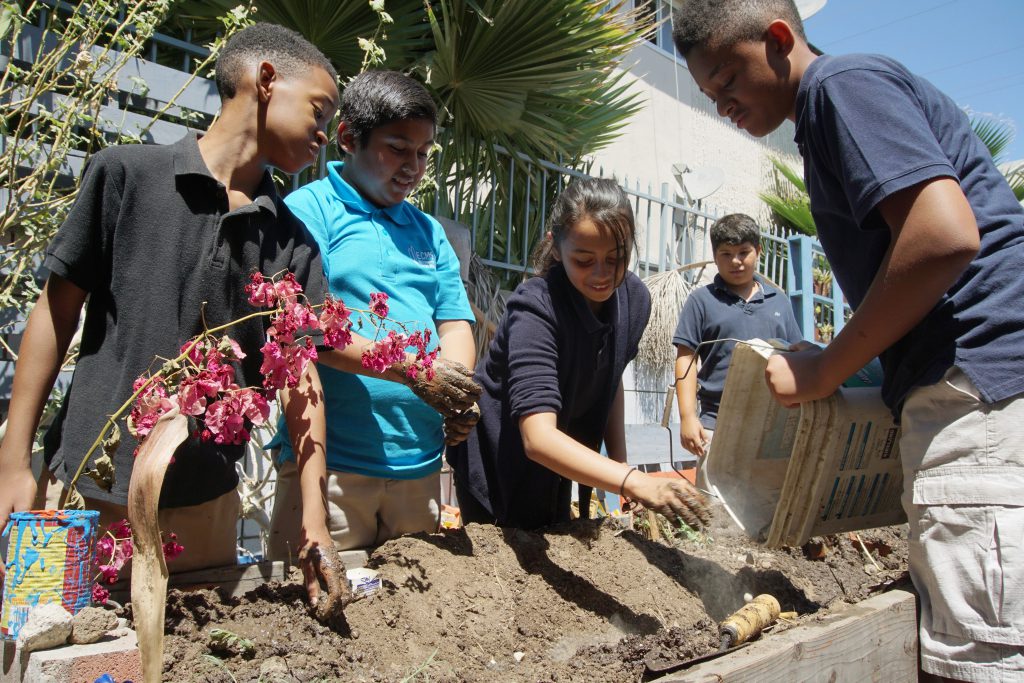
Kars4Kids: How do you teach your students independent and critical thinking skills? Can you give us some examples of activities or methods that develop these skills?
KC Fabiero: Since our inception, ECS’ instructional approach and curriculum has provided students with a unique learning model that utilizes authentic experiences and environmental service learning to inspire students to find meaning in their studies. Teachers work in departmental and interdisciplinary teams to create learning experiences that are standards-based, relevant to the students, and have a connection to solving real-world challenges. The curriculum includes: English/Language Arts, Social Science/History, Mathematics, Science, Spanish, and Art or Drama, and the Green Ambassadors curriculum, among others.
Interdisciplinary learning asks students to draw connections between areas that they might not see when subjects are taught within strongly demarcated disciplinary boundaries. Bringing together concepts, methods, or forms of communications from multiple disciplines, the study of history or science or literature or math becomes a fully integrated, intellectually rich experience for students. These projects also encourage students to challenge their worldviews as well as those of their teachers and peers.
Some examples include:
ECHS Intersession + Community Forum
At Environmental Charter High School, Intersession challenges grade-level teams to research, interview business leaders and community members, and take part in collaborative group work to arrive at their own answers to some challenging questions like, “What does LA need to thrive?” and “Can minimal living improve quality of life?”
While answering these questions, ECHS students incorporate community fieldwork to deepen their understanding of the complexity of the issues they are examining. They also perform service learning to contribute to their community in a way that impacts the issue that they are studying. Students are collaborating in ways that they haven’t ever before, learning to apply new media tools and using the city of Los Angeles as their learning lab. It’s an exhilarating and challenging process, and our students are taking the lead in their own learning.
They complete Intersession with their own informed insights about relevant issues, and their takeaways shape the values and visions that make them the leaders of today on the issues that matter most. At the end of this month-long intellectual exploration, students host a Community Forum, a day-long event during which students don their best professional dress, deliver presentations, showcase displays, facilitate experiential learning, and educate their community and peers.
ECHS Senior Thesis
As a part of their graduation requirements, ECHS seniors are expected to complete a three-part senior thesis project. In their senior thesis, students are asked to address two critical questions:
- What current environmental or social injustice do you see in the world that affects you and your community?
- How can you address that injustice and use your own personal power to create a civic action that will help others facing the same issue?
The senior thesis project includes a seven to ten-page argumentative research paper, a civic action, and a 20-minute panel presentation. Students present both their paper and civic action to teachers and community members at the annual Senior Presentations.
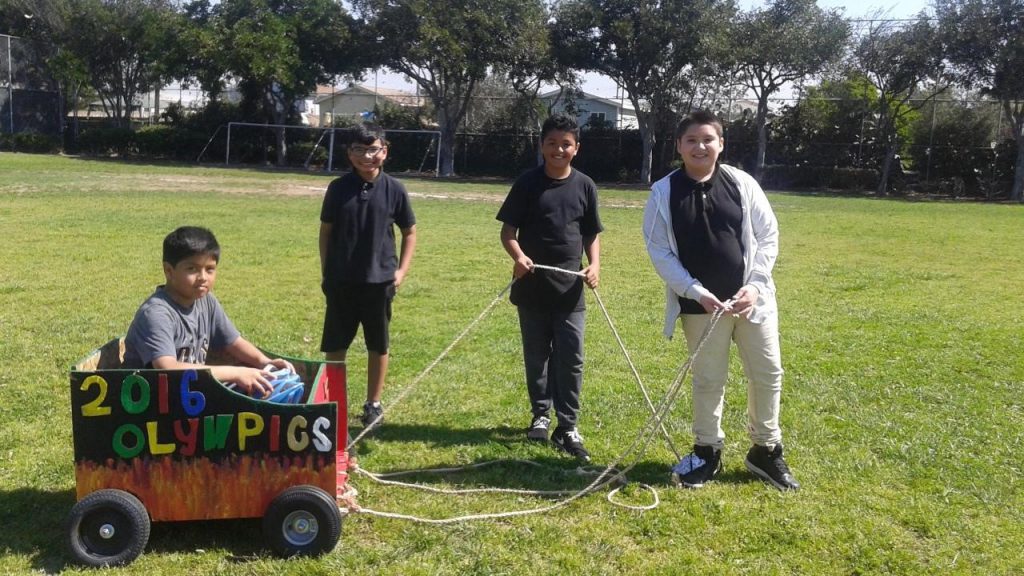
Interdisciplinary Benchmark Projects (IBMs) at ECMS
At Environmental Charter Middle Schools, the culminating integration of each quarters’ learning is an interdisciplinary assessment called an “interdisciplinary benchmark.” This assessment challenges students to combine the material they have learned across subjects in a way that stretches their thinking and empowers their academic growth. At ECMS-Gardena for the seventh grade “utopia” project, students used their math skills to solve equations determining the amount of water and electricity needed for their sustainable energy systems. They also build 3D models of their communities and constructed websites to display their utopias in a museum exhibition. Lastly, they used their writing skills to share information with their community about their utopia.
At ECMS-Inglewood, students applied their understanding of the development of city-states in ancient Greece and how their bodies are a system made of sub-systems to create a well-rounded hero to compete in the Greek Olympics. The project culminated in a full day of physical challenges and celebrations. This creatively designed, highly-integrated learning experience is just one example of our benchmarks, which are the result of the hard work and planning of all of our ECMS teachers. IBMs allow students to grow academically while also making connections between their subject matter and real-world issues.
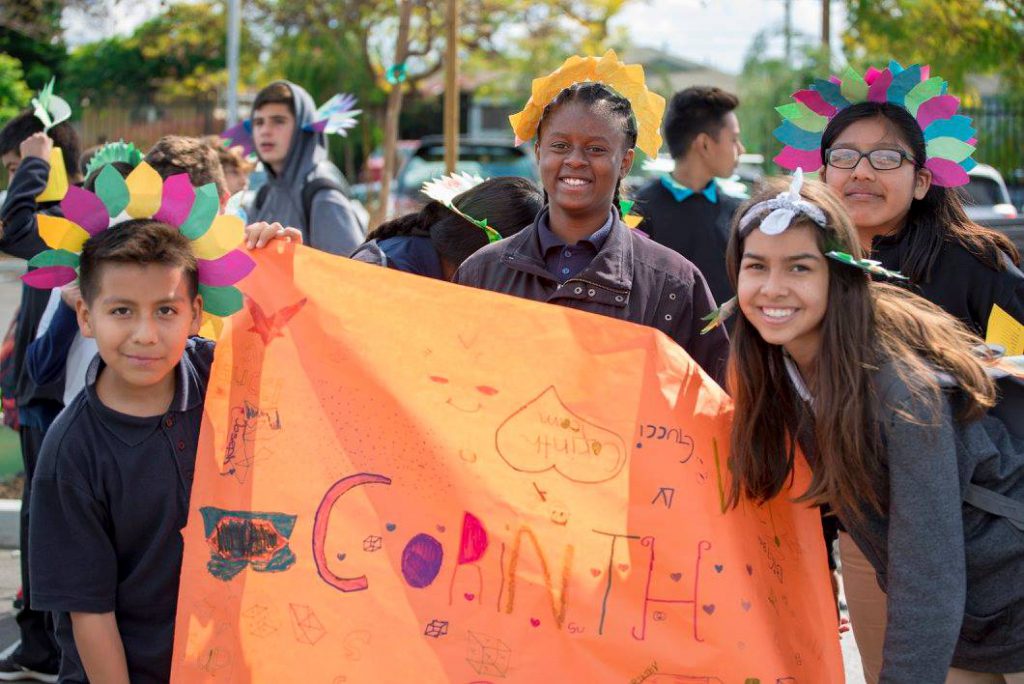
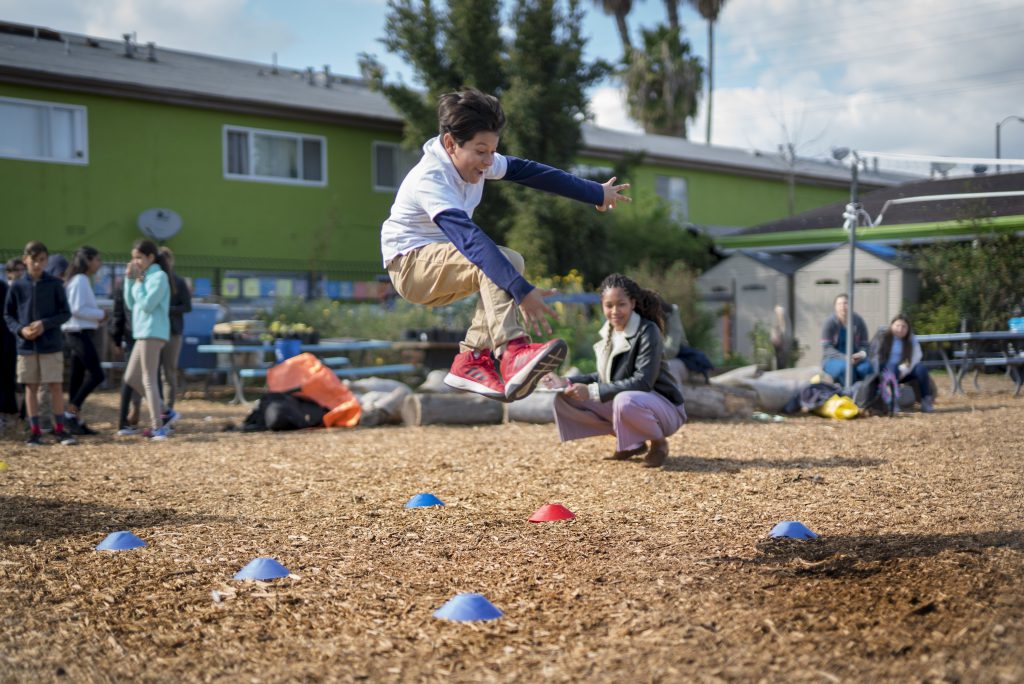
Environmental Learning
At ECS, students learn how the natural world functions and how they can manage and change behavior to live more sustainably. ECS students are presented with environmental perspectives, challenges, and social justice issues across their school subjects.
ECS students develop a deeper understanding of their communities and the world around them by struggling to find answers to real environmental issues. They work with scientists to study the effects of pollution on the marine environment, teach younger students about food deserts, show community members how to collect rainwater to water their plants at home and present sustainability research to lawmakers and business owners. These hands-on experiences enhance classroom learning. In meeting these challenges, ECS students develop a deep desire to learn and an opportunity to apply their understanding to better their communities and the world. All these experiences imbue our students with the will and the know-how to examine closely and participate in improving the conditions they see around them.
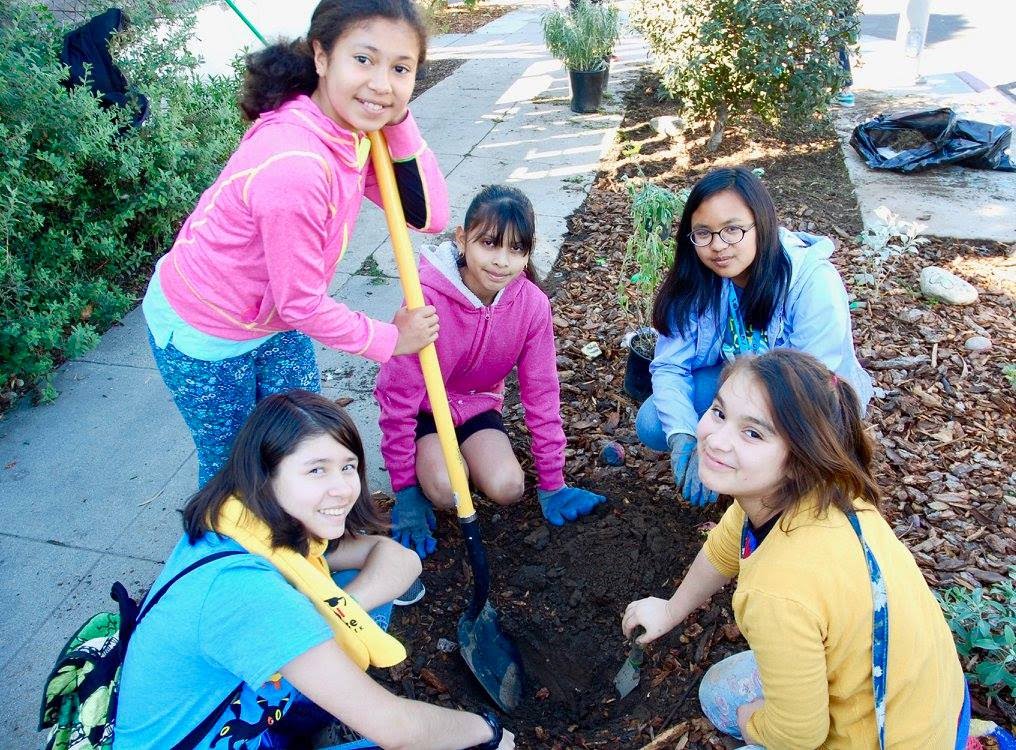
Kars4Kids: What’s the best part about working at ECS?
KC Fabiero: At ECS, we are defying the status quo – we work with predominantly students of color to grow their leadership skills and pursue and attain their higher education goals. According to statistics across the nation about the types of students we serve where college attainment numbers of quite dismal, we’re seeing 97% of our graduates being accepted into a four-year college or university. Of that number, over 80% retain and continue on to complete their degrees. I work here because I’ve seen firsthand how what we do works. When I say, “At Environmental Charter Schools, students come first”, I wholeheartedly believe this is true and know that everyone on our campus believes this as well.
Lucia Banuelos: For me, this is a job that has purpose. Our work every day is social justice-driven. We are doing equity work so we come to ECS motivated to continue doing this work. Additionally, I have the opportunity to work alongside those who share my deep belief in the mission and purpose. The result? The special magic that any visitor will see and experience on our campus. Together, we work to grow and support these amazing students who then go onward and outward and create magic in our communities.
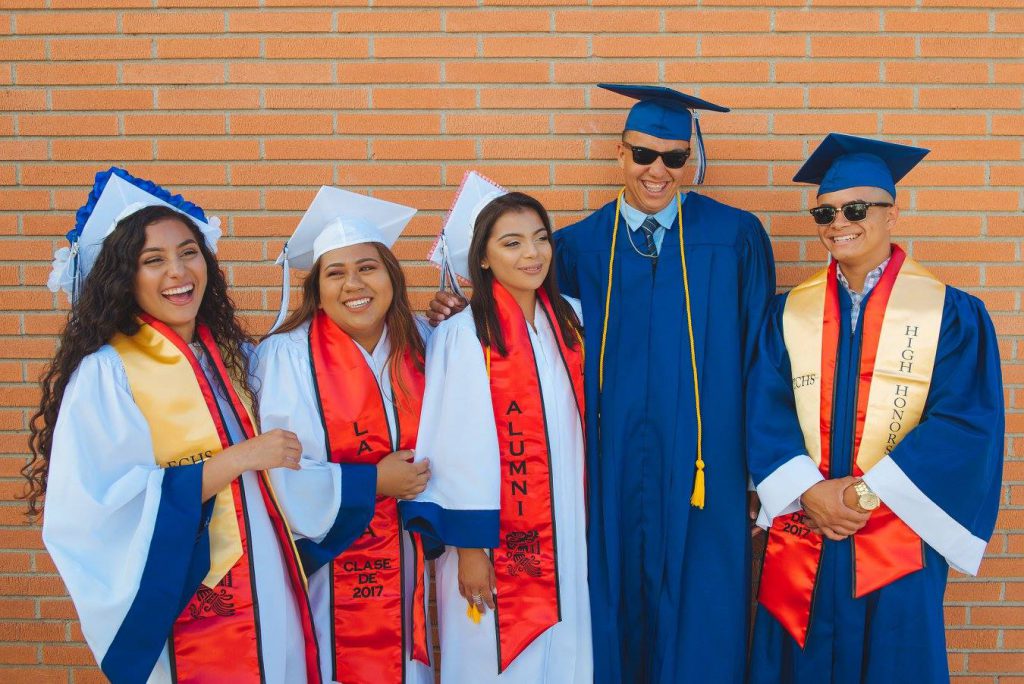
Kars4Kids: What’s next for ECS?
Lucia Banuelos: We continue doing what we do best and continuously seek to improve ourselves. We wholeheartedly believe that every student can learn and be accepted into a four-year university and that belief leads our work. Additionally, here at ECHS, we are working to grow our alumni program to ensure that our students are getting the support they need so they can achieve success beyond ECS.
For many of our graduates, they are leaving their families for the first time and are encountering a myriad of barriers – financial hardship, being the first in their family to attend college, navigating a new city and learning to access resources on campus, and managing the guilt of leaving home. We want to support them. Our alumni program also provides an opportunity to our graduates to stay connected to us. We encourage our students to become stewards of their community so see many of them wanting to come back to our community after college to give back.
KC Fabiero: And of course, our newest high school is set to open in 2020-2021. Stay tuned!
To learn more about Environmental Charter Schools visit www.ecsonline.org. To join a student-led tour of our green campus, sign up at www.ecsonline.org/tour.
